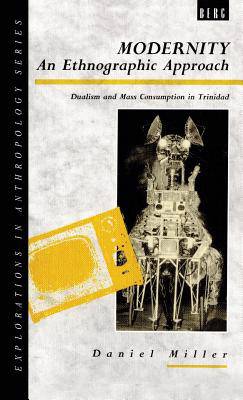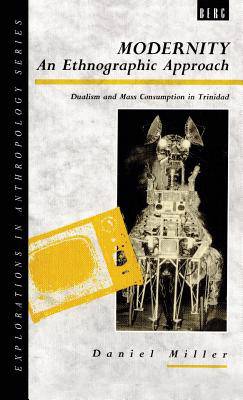
Je cadeautjes zeker op tijd in huis hebben voor de feestdagen? Kom langs in onze winkels en vind het perfecte geschenk!
- Afhalen na 1 uur in een winkel met voorraad
- Gratis thuislevering in België vanaf € 30
- Ruim aanbod met 7 miljoen producten
Je cadeautjes zeker op tijd in huis hebben voor de feestdagen? Kom langs in onze winkels en vind het perfecte geschenk!
- Afhalen na 1 uur in een winkel met voorraad
- Gratis thuislevering in België vanaf € 30
- Ruim aanbod met 7 miljoen producten
Zoeken
€ 290,45
+ 580 punten
Uitvoering
Omschrijving
From cultural studies, sociology, media studies, gender studies and elsewhere there have been a spate of books recently which have attempted to characterize the state of modernity. Many of these have also argued that what is required is an ethnographic work to determine how far these supposed trends actually apply to a given population. This book explicitly accepts this challenge and, in so doing, demonstrates the potential of modern anthropology studies. It starts by summarizing some debates on modernity and then argues that the Caribbean island of Trinidad is particularly apt for such a study given the origins of its population in slavery and indentured labour, both forms of extreme social rupture. The particular focus of this book is on mass consumption and the way goods and imported images such as soap opera have been used to express and develop a number of key contradictions of modernity. It will be of interest to anthropologists looking for a new potential for the discipline, as well as students in other fields who will be interested in the new contribution of anthropology to their debates.
Specificaties
Betrokkenen
- Auteur(s):
- Uitgeverij:
Inhoud
- Aantal bladzijden:
- 348
- Taal:
- Engels
- Reeks:
Eigenschappen
- Productcode (EAN):
- 9780854969166
- Verschijningsdatum:
- 19/04/1994
- Uitvoering:
- Hardcover
- Formaat:
- Genaaid
- Afmetingen:
- 144 mm x 223 mm
- Gewicht:
- 544 g

Alleen bij Standaard Boekhandel
+ 580 punten op je klantenkaart van Standaard Boekhandel
Beoordelingen
We publiceren alleen reviews die voldoen aan de voorwaarden voor reviews. Bekijk onze voorwaarden voor reviews.









